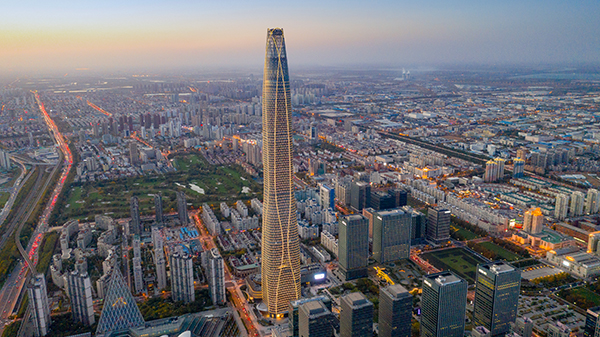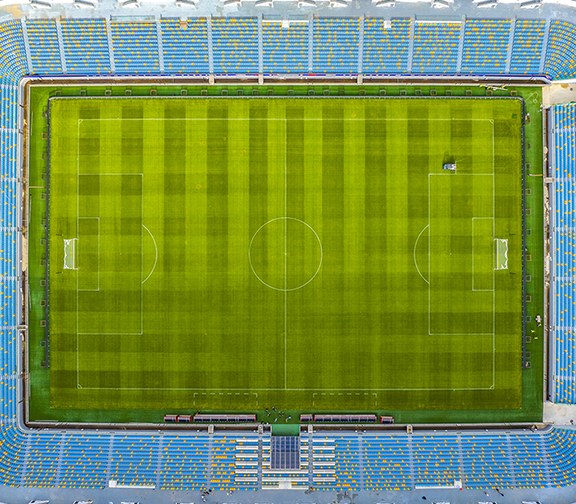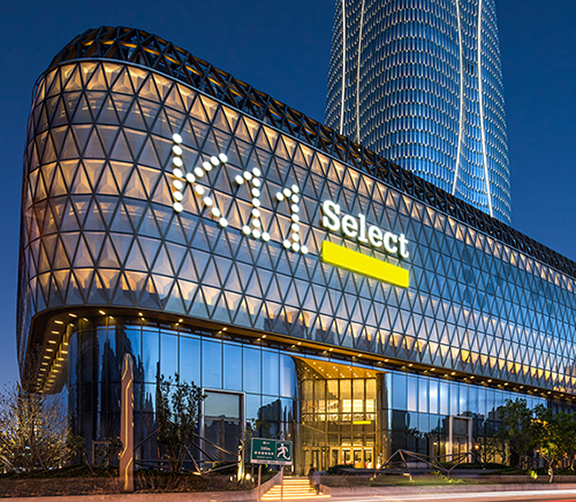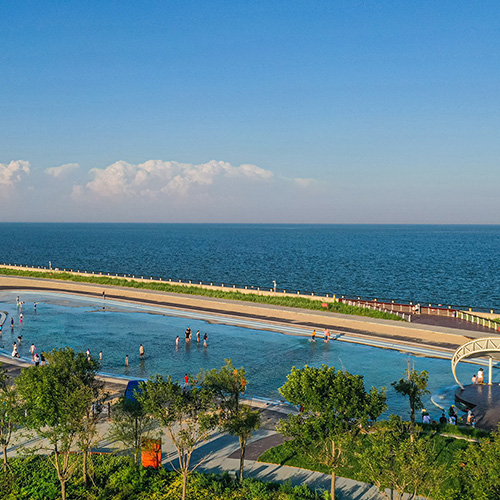Teda

Taida Subdistrict was established on December 6, 2017. It stretches from Qinhuangdao-Binhai Expressway in the east to Beijing-Shanhaiguan Railway in the west, with Tianjin Avenue to the south and Beijing-Tianjin Expressway to the north. It covers a total area of 54.14 square kilometers and is an important part of the core area of the Binhai New Area. The subdistrict administrates 20 communities and 145 residential neighborhoods, with a population of 61,000 households and over 140,000 residents.
Taida enjoys convenient transportation with straight, wide, and well-connected roads within the region. It is seamlessly linked to more than 10 main thoroughfares that are part of the national highway network. The Binhai High-speed Railway Hub is located here, and it is only a 10-minute drive from Tianjin Port and a 40-minute drive from Tianjin Binhai Airport.
The residential area of Taide offers a diverse range of amenities and creates a thriving and livable environment. It offers comprehensive services and modern financial industries, such as Yujiabao-Xiangluo Bay Business District, Teda MSD, and Taide Financial Street. Shopping and leisure options abound, including K11 Select, Binhai Isetan, Wanda Plaza, and Legou Shopping Center. The subdistrict is also host to esteemed higher education institutions, including The Juilliard School, Nankai University TEDA College, and Tianjin University of Science and Technology. Furthermore, residents can enjoy the tranquility and green spaces of Taifeng Park, City Center Park, and Teda Forest Park, which serve as green and ecological oases within the bustling city, providing a beautiful, convenient, and comfortable living environment.
Taida boasts high-quality educational, medical, cultural, and sports resources. It has a total of 30 primary and secondary schools, kindergartens, and 120 other educational institutions, including training centers. Additionally, there are 146 cultural and publishing companies, 267 sports venues and facilities covering a total area of 542,000 square meters, two tertiary hospitals, and 76 other medical and health institutions. Notably, the TEDA NO.1 Middle School is a prominent municipal school, while Teda Hospital serves as an important tertiary comprehensive hospital in the core area of the new area. Furthermore, Teda International Cardiovascular Hospital is recognized as a world-class tertiary Grade A specialty hospital, both domestically and internationally.
- Links
- Exploring Tianjin
- Tianjin Gov























